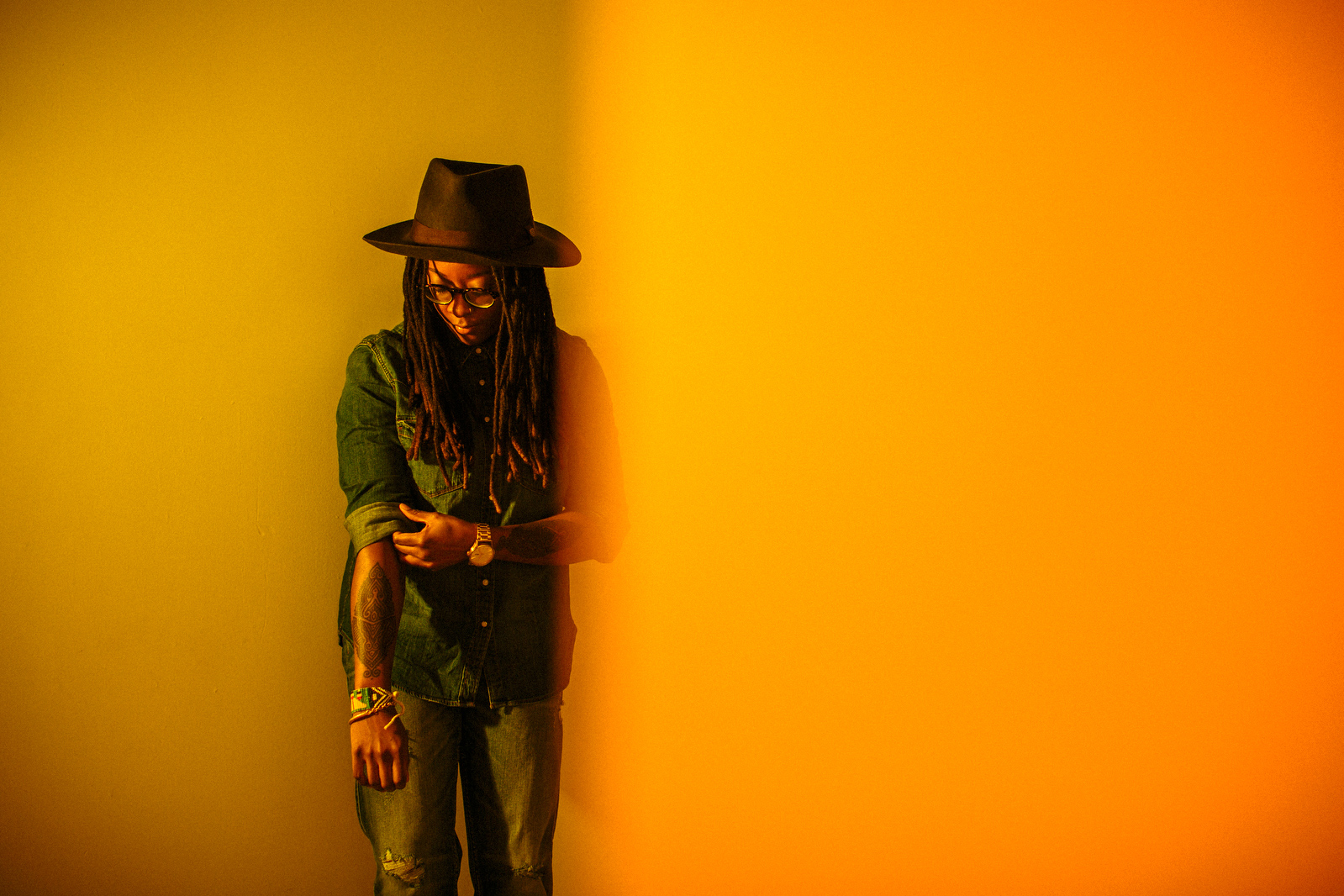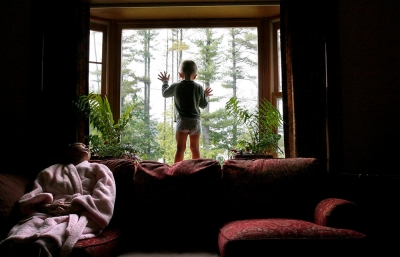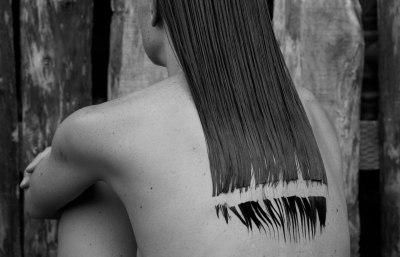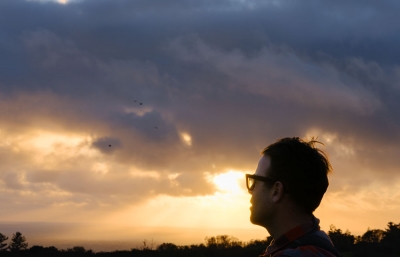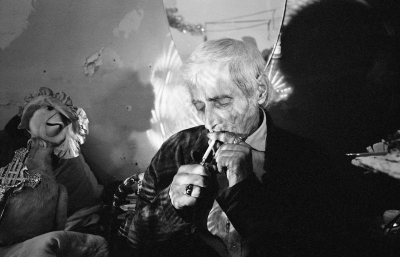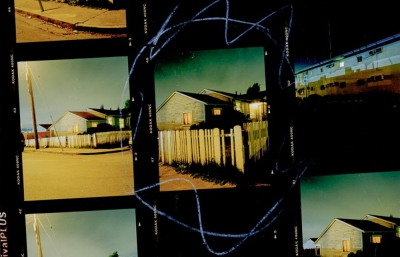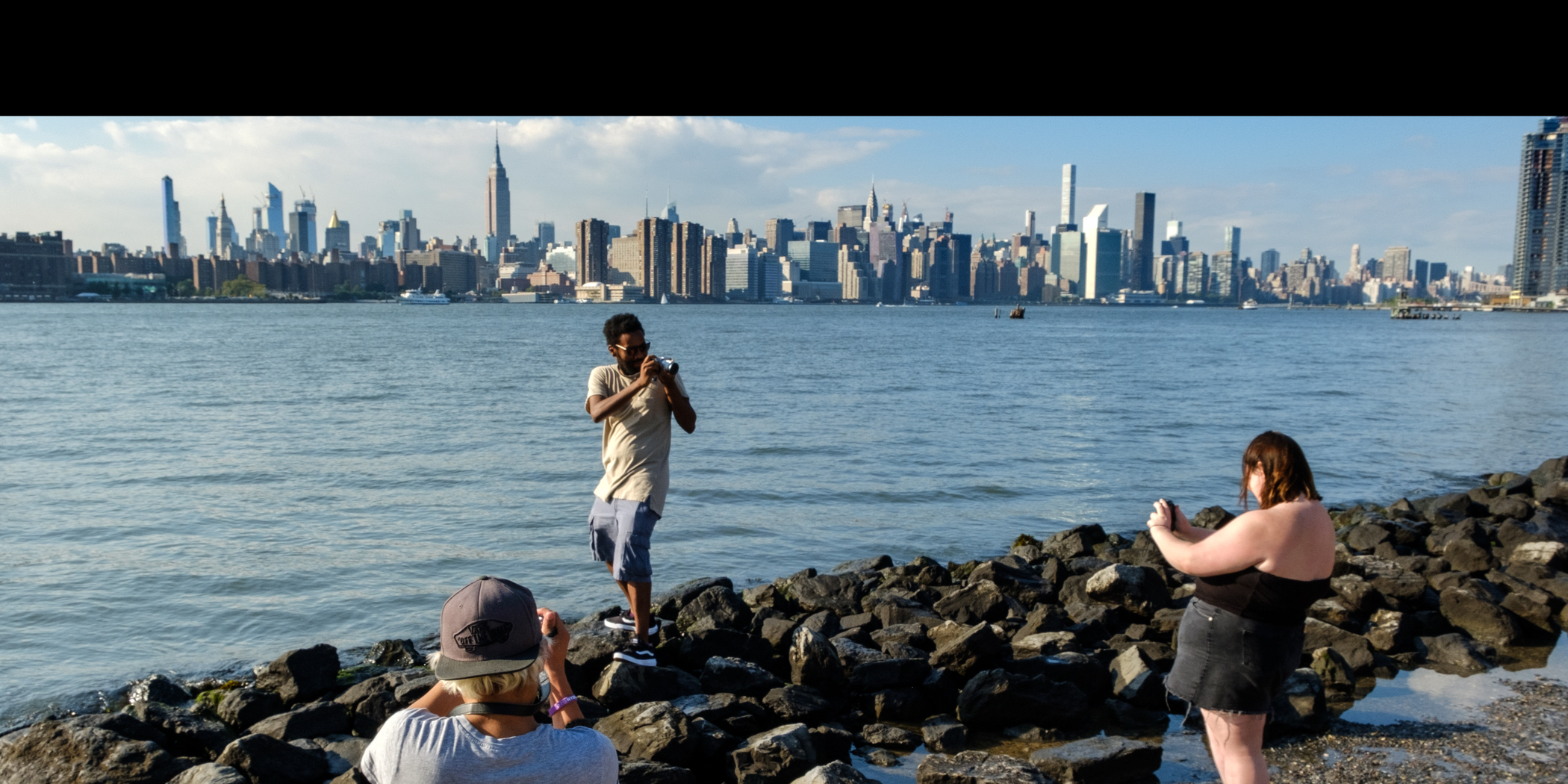
Vision Walk: Brooklyn
With Bryan Derballa
We are traveling around the country with VANS VISION WALKS, a series of workshops led by some of our favorite photographers in their home cities. This past weekend we spent the afternoon with Bryan Derballa as he led participants on a walk through Williamsburg in Brooklyn.
Sitting in front of a blue background he had set up for a demonstration, Bryan Derballa explained to us, "Photography is always problem-solving. Something's going on, how do you make it work?" As Vision Walk participants slowly meandered into the meeting space at The General by Vans in Williamsburg, he continued, "With Instagram, we know what is popular, what looks good, and we often fall into those trends, so I encourage people to get that photo that you know is gonna look good, but then continue working afterwards. If the subject's cool with it, keep going, and keep pushing it."
Like many in his generation, Derballa found photography through Skateboarding and the magazines and culture surrounding it. Skateboarding led to documenting his friends and their adventures, which led to sharing those photos on something that was fairly new at the time, a blog. Soon he had an audience and began to find gigs shooting for other people and publications. Derballa now boasts a long list of editorial and commercial clients including J. Crew, Nike, Vans, the New York Times, WIRED, Rolling Stone, and is a frequent contributor to our own magazine, Juxtapoz. Read our interview with him and watch a video of his walk below.
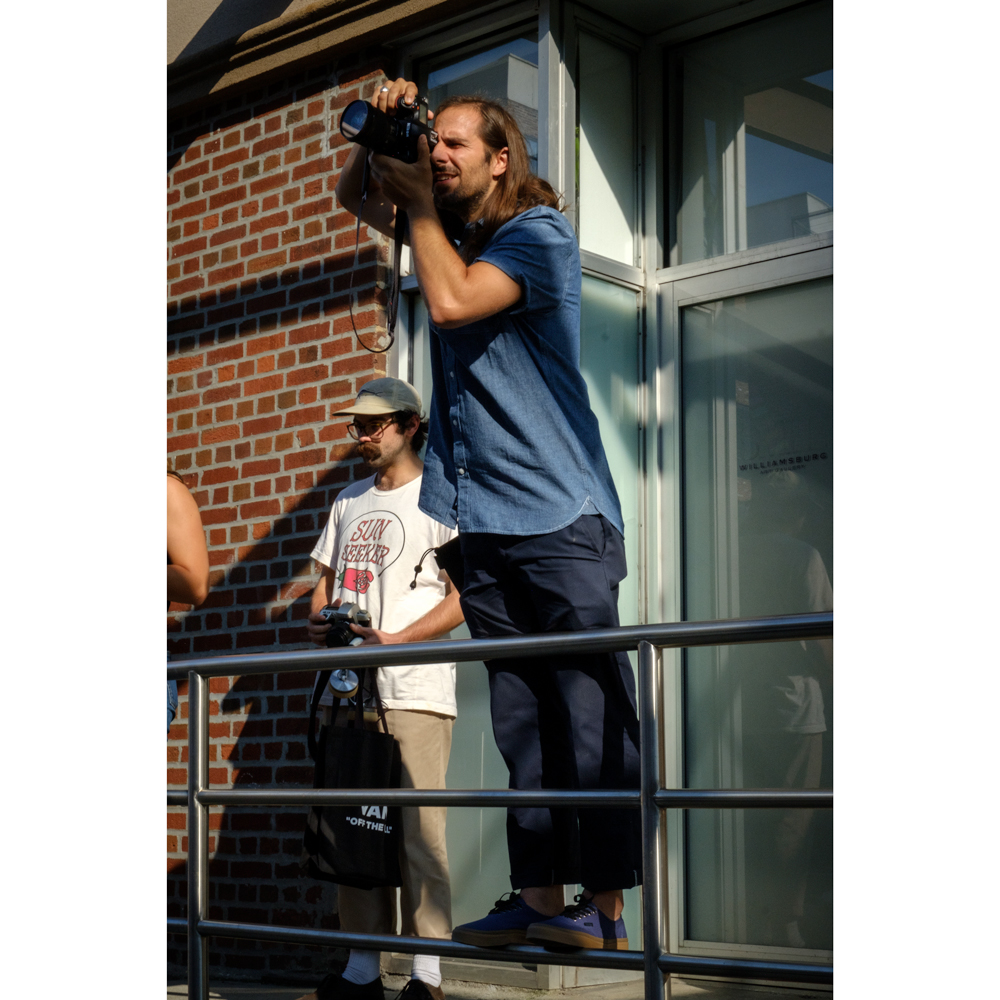
Juxtapoz: When did you first get an inkling that photography was something you were interested in?
Brian Derballa: I Initially got into photography through skateboarding. I learned about it from looking at magazines all the time and appreciating the photos. I got a pretty nice point and shoot when I was in college, a Yashica T4, when they sold them new. I lost it down a waterfall and didn't really shoot again for a little while. But then, before Blogspot was even a thing, I had these computer programmer friends who were making blogs and they showed me a little bit about how to do it. I started a blog with my friends, and we needed content to populate it. We needed pictures to go on the website, so I started taking point and shoot photos, and then just wanted to make them better. That's when I started really taking pictures. I later had a friend who went and worked for a newspaper, and he was the one that showed me that it could be a job.
What were you shooting then? Was it skateboarding, just your friends? Were you shooting portraits?
A little bit. I was shooting people in my life and the experiences we were having. I was living in San Francisco at the time, it was pre-Twitter, Facebook was still tiny, it was just a hub of cool, creative people that were doing rad shit all over. San Francisco was like a playground, a beautiful city where you could just ride your bike from one end to the other and find all kinds of weird things to do.
"With photography, I felt like I found a language that was my own, that didn't feel forced. It felt very natural and it felt like the best way for me to express something."
I moved to New York shortly after. I was in my early 20s and everything out here was just the craziest, wildest thing I'd ever seen, so I wanted to record all that, document it. I was shooting a lot of photos of people I knew, or that I was meeting, and it became a record that would then go on the blog. I'd get a little bit of feedback from it. It was cyclical, people would encourage me to do this, so I would do it more, and that's really what it started out as. Of course, it evolved, but initially, it was really just, "This is crazy, I gotta remember it, I gotta get it in this little black box."
What did you study in college?
I went to school for English.
What were you thinking you wanted to do after college?
I wanted to write for a magazine, some kind of writer. I wanted to tell stories. I interned at a magazine, and I liked it, but whenever I'd write it felt sort of forced or fake. I never could figure out a language that felt my own. But, with photography, within the first year or so, I felt like I found a language that was my own, that didn't feel forced. It felt very natural and it felt like the best way for me to express something. And still to this day, if I make a card for a friend or a family member, I just make a print and paste something on it. That to me is gonna say so much more than a whole page of writing. I appreciate all forms of expression, but photography, for me, is the most natural and most sincere.
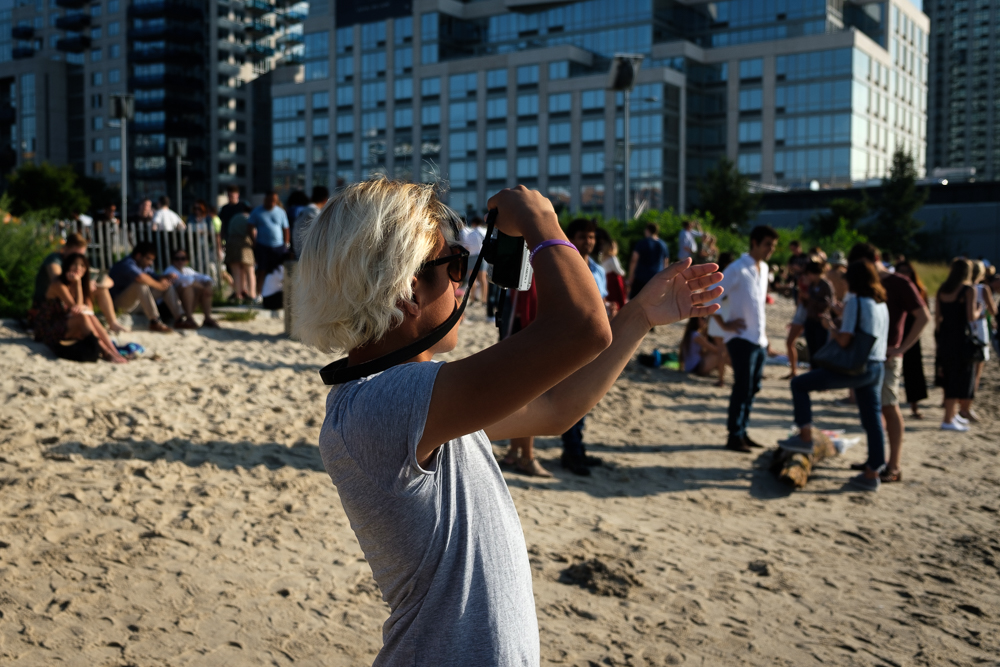
Since it was already something you were thinking you might want to do, did shooting for magazines feel like the natural thing to try and do?
Well, I wasn't sure at first. I was interning at Vice and they offered me a job, this was right when the VBS was starting, when they were moving into video, and I was gonna be someone who'd take thumbnails, and resize videos, and do stuff for web, which is all great, and they've crushed it, and I probably made the wrong decision, but I just couldn't imagine spending all my time doing that because all I really wanted to do was take pictures. But I had no idea how to make that a livelihood, make it a working thing. I called a friend who worked as a photographer, and he was basically like, "You'll never be rich, you'll never be famous, but it's the best job in the world," and I agree, I still feel that way.
When you finally started getting some assignments did you feel like, "Alright, this is gonna work out, this is something I can do, this was the right decision."
Yeah, I mean I was a scrappy skateboarder. I didn't need much, but yeah, it did, it started to come in. Still, to do this day, it's kind of shocking that someone says, "We're gonna pay you hundreds of dollars to go out and take pictures for a few minutes," and I feel so grateful that I get that experience. At some point, when I started to save money, had money in my bank account, and was still getting calls to do assignments, then yeah, I felt like it was going to work. And I worked for it too, I never took an assignment for granted. I always came through. I don't want to say I was always early, or never late, because that just happens, but when I'm there, I'm like in it. I shoot until I get my photo, and I really follow up with really good communication. That's the English major. The people I work with, I really communicate with them and let them know what they're gonna get, and how things went, and I think they appreciate it.
So when you were first starting out, what were some of the things you quickly had to learn that you realized you didn't know enough about?
I mean the craziest thing is just how to work. I never went to school for it, and I think even if you do go to school for photography, I don't know if they teach you things like, "This is how you file your images, this is how you interact with a photo editor, this is how you're supposed to approach subjects." I never really assisted either. There are a lot of things I wish I did, that I didn't do, but I had to pick up on all of those things, and create systems for myself, like invoicing, really boring stuff, archiving, and had to figure out all of those things in a way that I knew was gonna work and be sustainable going forward.
Another thing that interests me, is just understanding the context of photography. People will say, "Oh, you want to be a photographer? You're gonna shoot pictures, but of what?" Realizing there are still life photographers, there are editorial magazine photographers, there are fashion photographers, portrait photographers, and they're not all the same, it's not all one thing. Generally, the best people specialize in one or two things, and I didn't know that I wanted to do everything, I was like, "Sure, I'll shoot buildings, interiors, whatever you need." It took me a long time to realize, "Okay, kind of figure out mostly where my style can work," and do those things, but I still do get carried away sometimes, and want to try other stuff.
Have you always been good with people and taking photos of people, is that something that felt natural?
I mean, it's always hard. Especially approaching people on the street, people you don't know. I'm maybe, I think of myself as an empathetic person, and so if I'm photographing someone, I'm reading how they're feeling, and weighing in my mind, "Okay, can I ask them for this? They might be a little bummed out, but are they gonna be so bummed that it's worth me not getting my picture? Or is my picture gonna be worth putting them out for 30 seconds of their life?" It's a constant weighing of things, but there are definitely times when I just read the vibe and I'm like, "Okay, well, we'll wrap it up." I worked retail when I was in college, and I guess my first job was at a skate shop, so you'd just talk to people all day, and I think I got good at dealing with people through that.
Now that you're shooting celebrities and people who have their photographs taken quite a lot, I assume that they often come in with an idea of how they normally do photo shoots, how they think they want to look. How do you get somebody to loosen up and allow you to get something unique?
It's really just getting people to understand where you're coming from. I have no qualms about telling someone, "I'm really excited to photograph you, I'm really looking forward to this." I won't fan out and ask for autographs and selfies, but I'll say "This means a lot to me, I'm working for this publication,” and often it's someone good that I'm proud to be working for, so, "I'm working for this publication, and we would really love to get this from you." It’s laying it out ahead of time, talking to someone as a person, and I don't try to manipulate people into uncomfortable situations or try to trick them into anything. It's usually really straightforward, and just asking with a good bit of empathy. And generally, if they're a halfway decent person they'll try to collaborate, at least meet you halfway. I've only had a handful of people who just say, "Nope, this is how it is,” and you get what you can get. In those situations, you can still have control over the lighting, and lighting is not the only thing that makes a photo, but you can definitely enhance a shitty situation with some cool light. So it's just figuring out all those things. Photography is always problem-solving. Something's going on, how do you make it work?
What do you think makes one person’s photo of a similar person or thing unique from another?
I feel like early on, that's really how I tried to separate myself, I was trying to find a different way to take pictures. One of the first big things that I started doing was Fashion Week, which happens twice a year in New York. You'd have a dozen, two dozen photographers all on either side of you trying to take the same picture and just being in those situations, and trying to think of some way to approach that differently, whether it's changing your lighting, changing your lens, and just looking for something unique.
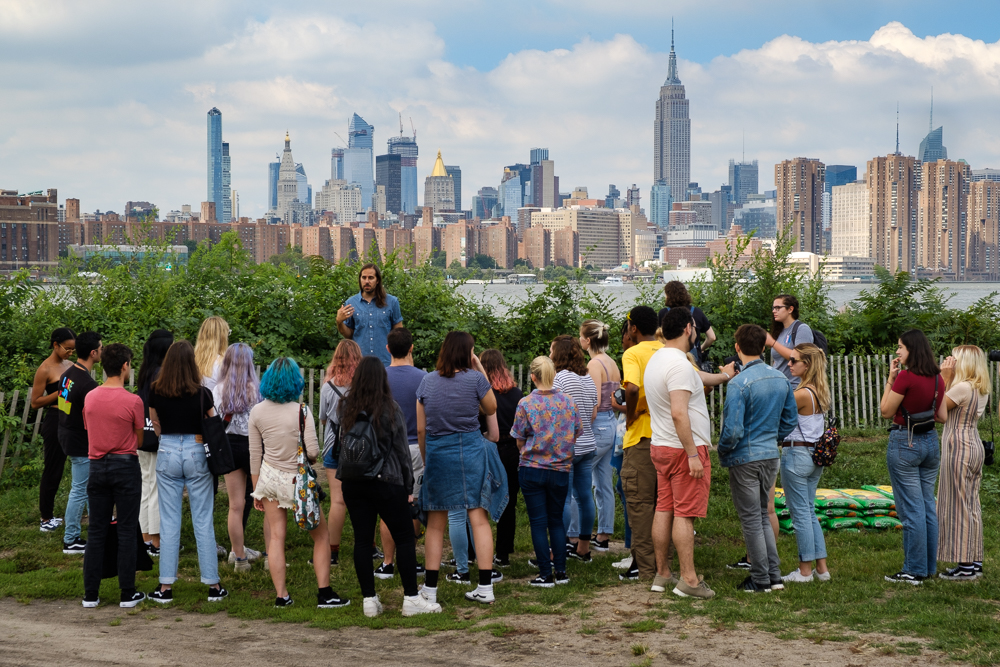
I always support that, and obviously, every person has their own perspective, and hopefully, that comes in too, but we all have a pretty big visual vocabulary these days. With Instagram, we know what is popular, what looks good, and we often fall into those trends, so I encourage people to get that photo that you know is gonna look good, but then continue working afterward. If the subject's cool with it, keep going, and keep pushing it. Keep changing your angles, your composition, your lighting, all of these technical things, but also, I guess I don't want to make it so technical but try to change small things that you have control over and you most likely will get something different.
I think a lot of it just comes down to having good taste and sensibility. It's the same thing in music, my favorite musicians are not the most technical musicians, and they're not playing things that are completely original, necessarily, but they have a good ear for tones and are playing styles and things that I think are cool. They have good taste, mixing all these things and making something special and unique out of it.
Who are some of your favorite photographers who do that?
I have a lot of favorites, but lately, I've been such a fan of these young women photographers. Olivia Bee, Petra Collins, these women who are bringing very unique perspectives to the work. Photography can be kind of homogenous. There are many older white male photographers like myself, and we often come from the same place, so we often have the same thing that we want to say. Petra's work is melding a lot of different things that are already in existence, that other people have done really well, but she has great taste, great sensibility, and can put it all together into something that's very uniquely her vision, and it's so true to who she is, and I think that's just beautiful.
You shot a beautiful portrait of her.
Oh, yeah, I did get to shoot her. I was fanning out, it was so cool. I'm a generation older than her. It’s the same with the musicians, I love the young, female musicians, like Soccer Mommy and Snail Mail who are bringing these sort of cool perspectives into music, and taking out the ego and the machismo that has permeated a lot of photography for so long.
What kind of inspiration do you find outside of photography? Is there anything else you do when you are feeling unmotivated or uninspired photo-wise?
If I have like three hours of free time just to consume whatever, I hate to say it, but I'm not looking at photography books, I'm not searching photography blogs, I'm reading about music, listening to music, watching old MTV Unpluggeds, or concerts from the 90s. That to me is such a huge inspiration, and I'm always trying to find, how can that aesthetic work in photography. I also watch a ton of movies and I don't know if I pay attention enough to the cinematography. That, to me, can take away from the enjoyment of the film. When I look at photos, I'm always picking them apart, and I hate it, but that's just what happens as a photographer. With movies, I can lose myself.
Is there an example of something you saw in a movie or heard in a song, that you worked into a shoot?
I did like a fashion shoot, and I really wanted to do it at night in Chinatown, and use all the crazy lights there, so I watched Won Kar-wai's Blueberry Nights the night before the shoot. The cinematography is gorgeous and I was paying attention to it, but I also just wanted to feel the movie, and the vibe of the movie, and so I kind of watch that and try to incorporate those feelings into this work. And it came through pretty well.

